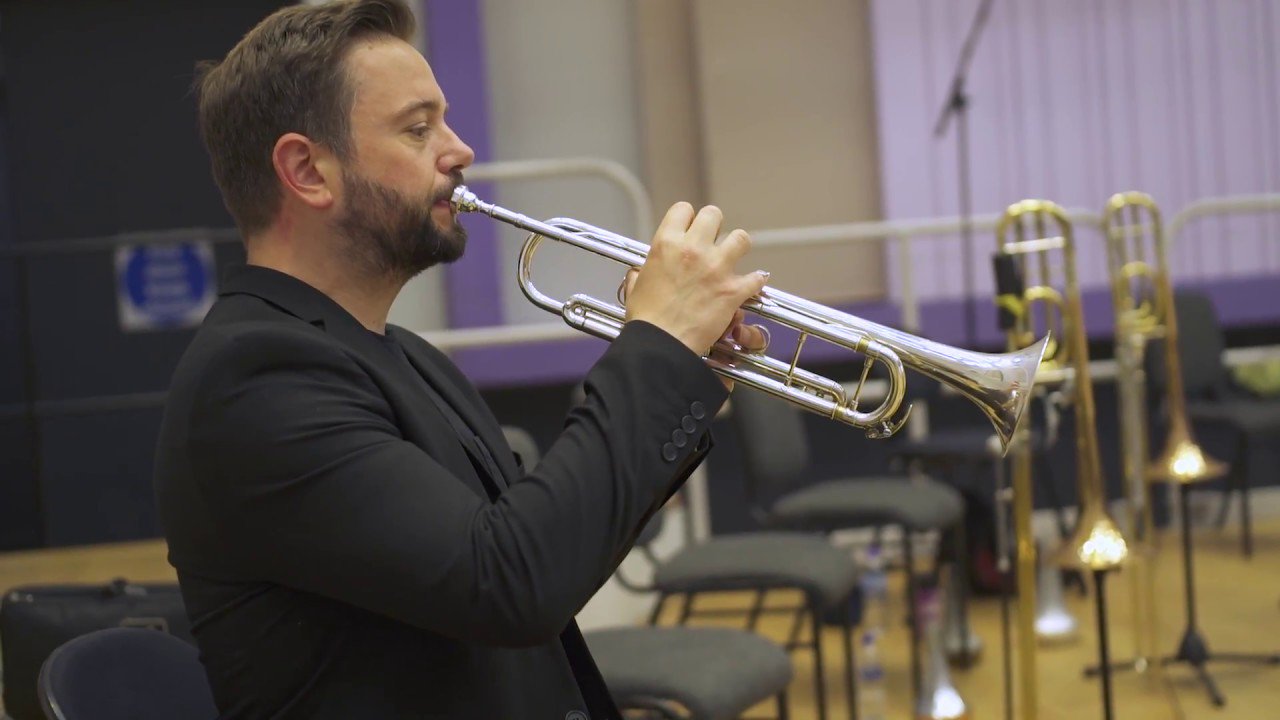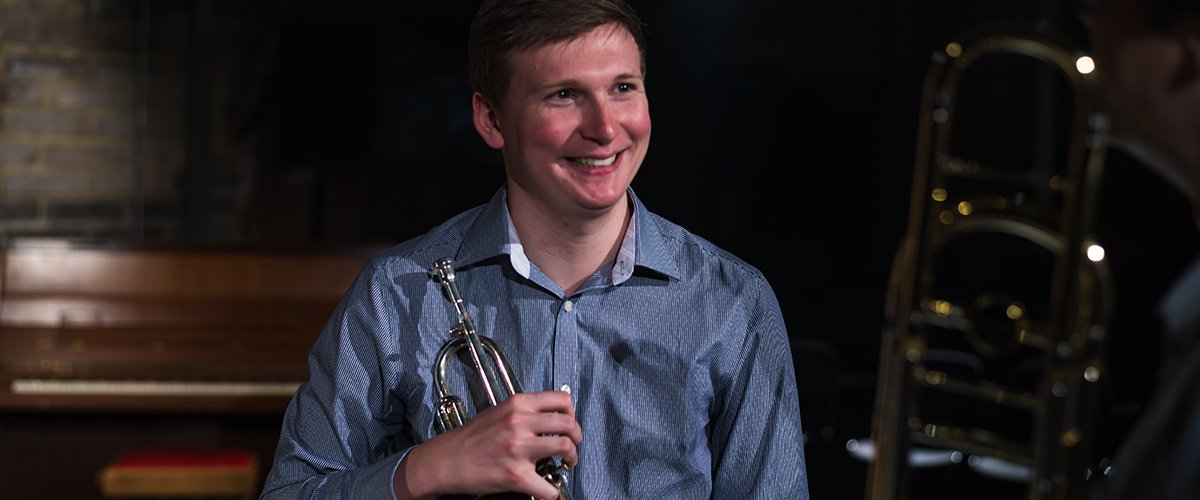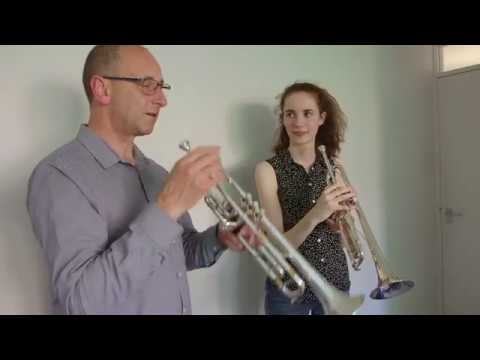Brass Pathways Q&A: Gary Farr, Trumpet
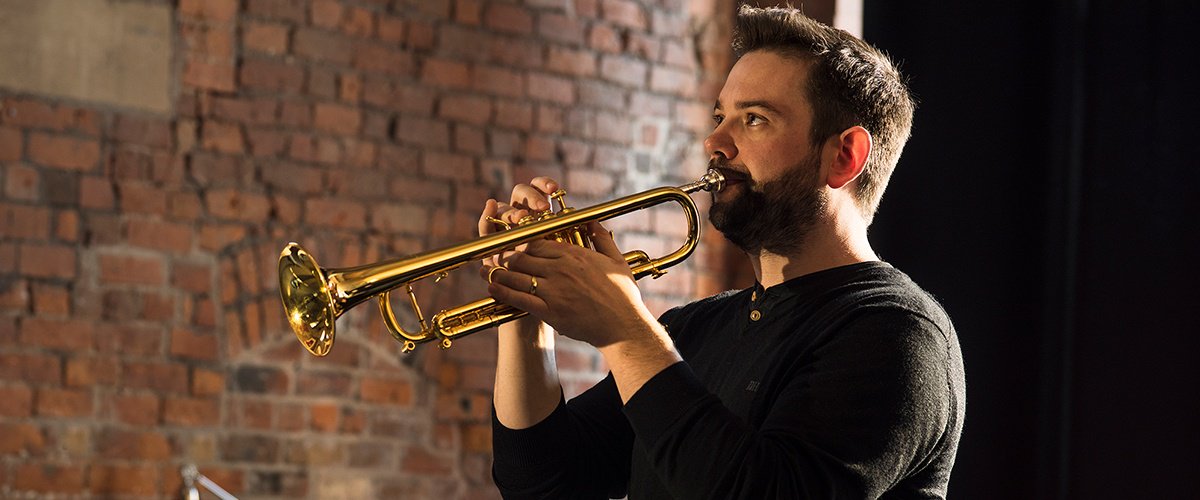
Gary Farr holds the position of Sub-Principal Trumpet of the BBC Philharmonic, having previously played with the Hallé Orchestra, the Royal Liverpool Philharmonic and Remix Ensemble in Portugal, and at major music festivals around the world, including the BBC Proms at the Royal Albert Hall. He is also a trumpet tutor at Manchester University and at the Junior Royal Northern College of Music.
To explore what the life of a professional freelance brass player is like, we asked Gary to tell us about his orchestral career, as well as to share his advice for those learning to play the trumpet.
Can you tell us a bit about your career to date?
I feel incredibly privileged to be able to have a career performing music. After finishing my studies, I worked on a freelance basis as an extra player with various bands, ensembles and orchestras around the North West of England such as the Hallé Orchestra, the BBC Philharmonic, and the Royal Liverpool Philharmonic. I also became a member of Remix Ensemble, a contemporary music group in Portugal, so I gradually developed a huge variety of work and got to travel all over the world doing it.
What first inspired you to learn the trumpet?
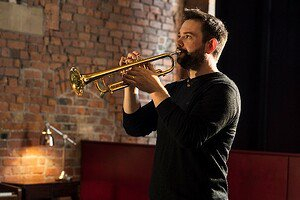
What sort of education on the trumpet did you have?
I was taught at home by my family at first but that’s not always ideal! I learnt a huge amount from good experiences in bands and orchestras, and discovered a lot of things for myself, as well as having lessons from professional trumpet players who introduced me to the important study books by James Stamp, Vincent Cichowicz, Herbert Clarke, and Schlossberg. Then I was accepted into the Royal Northern College of Music (RNCM) in Manchester to study at undergraduate level for four years which was a great education.
What was it that made you want to turn learning the trumpet into a career?
I knew very early on that playing the trumpet was what I wanted to do for a living. I never really considered anything else, which isn’t really very sensible, but I was very passionate about it and I still am so I knew it was right for me. Of course, not every young player will be so certain and that’s absolutely fine. I tell all my students that as long as they work hard and give it everything, nothing bad will come from truly immersing yourself in playing music as long as there’s not too much pressure - from yourself or others.
How did you first get into the industry as a professional?
In the UK there is a very healthy freelance scene. Orchestras need extra players for virtually every performance they do so the first auditions you do are for extra work. Luckily, before I even got to that point, some of my teachers at the RNCM thought I was ready to work with them so I got some great opportunities that way. Plus there are touring shows and musicals, semi-professional orchestras, brass bands, big bands etc, there is so much music out there. You can also make things happen yourself by forming a chamber ensemble or group of your own. If you are getting out there and playing well, word will spread and opportunities will come your way.
What inspired you to follow the career path that you have?
I fell in love with orchestral music and all the wonderful colours of the different instrument groups and how the brass sound blends or stands out from them. There is a wealth of fantastic repertoire that it could take a whole lifetime to get to know. We are lucky to have many fantastic orchestras in the UK so there are quite a number of full time positions available and, of all the ways of making a living through playing the trumpet, this was what most appealed to me - first as a freelance player and then when I got my job in the BBC Philharmonic.
What have been your career highlights so far?
I would have to say playing at some of the major music festivals such as the BBC Proms, touring to wonderful locations such as Japan and South America, and performing alongside some of the most amazing musicians in the world across a variety of genres. Sometimes I have to pinch myself! There is also a special place in my heart for projects that I have been a part of devising and creating with my group the Vonnegut Collective. Our music making is always creative and personal and involves lots of improvisation which I find incredibly rewarding.
What do you love most about what you do?
The standard of a professional orchestra is incredibly high and it never ceases to amaze me how good it sounds even at the first rehearsal. We work with great conductors and soloists and we play music by great composers. Sometimes though, it’s the little moments of recognition like seeing the smile on a face in the audience, or an audible gasp in the space after the last chord of a great work. It’s not always easy to keep these high standards up but music has the power to inspire, heal, and transport you someplace magical so to be enveloped in that is a wonderful thing.
What do you think are the most important skills needed by a trumpet player, and when playing the trumpet in an orchestra?
First and foremost we have to be good musicians – we must listen and be incredibly aware. This helps our ensemble skills but also informs our practice. The best results happen when you have a specific sound in your head that you try to recreate with your instrument. To be a professional orchestral trumpet player you need a beautiful sound and good stamina and control over all registers, dynamics, and command of tricky technical passages (for example the demanding articulation in Ravel’s writing). Then there is mastering transposition which is a challenge that takes time but is a great skill to have. And lastly, the ability to play well when amongst 90 other musicians; when to blend, when to shine, how to play together and in tune with strings and woodwind. It can take a long time to learn to really listen and to be able to adapt to what’s going on around you.
What advice would you give to someone learning the trumpet?
Listen! Listen to lots and lots of music of all genres and have a go at playing in all those styles. Approach the trumpet in a singing way; so naturally, melodically, and not getting hung up on technical problems. Make sure that your practice is fun as well as challenging and that you play music that you like to play. Not all music needs to be written down...learn some things by listening or by making up the music yourself!
What advice would you give to someone looking to make it as a professional in the industry?
As well as the dedication it takes to get your playing up to a professional standard it’s really beneficial to have a good knowledge of what the work actually entails. Be a geek! Study and learn about the organisations you may be working for, the personnel of the orchestra – including the conductors and management, what sort of instruments they use, how the section plays in terms of sound, articulation, volume. Every orchestra is different, every situation is different…you may need to adapt. Then when you get your opportunity: Be on time, be well prepared, try to fit in to the section straight away musically and socially, and of course be yourself.
What are you involved with at the moment?
Apart from the demanding schedule of the BBC Philharmonic and my teaching, I do lots of interesting creative projects with the Vonnegut Collective, where I get to play alongside dancers, physical performers, visual artists and some of my favourite musicians in a very open and creative way.
